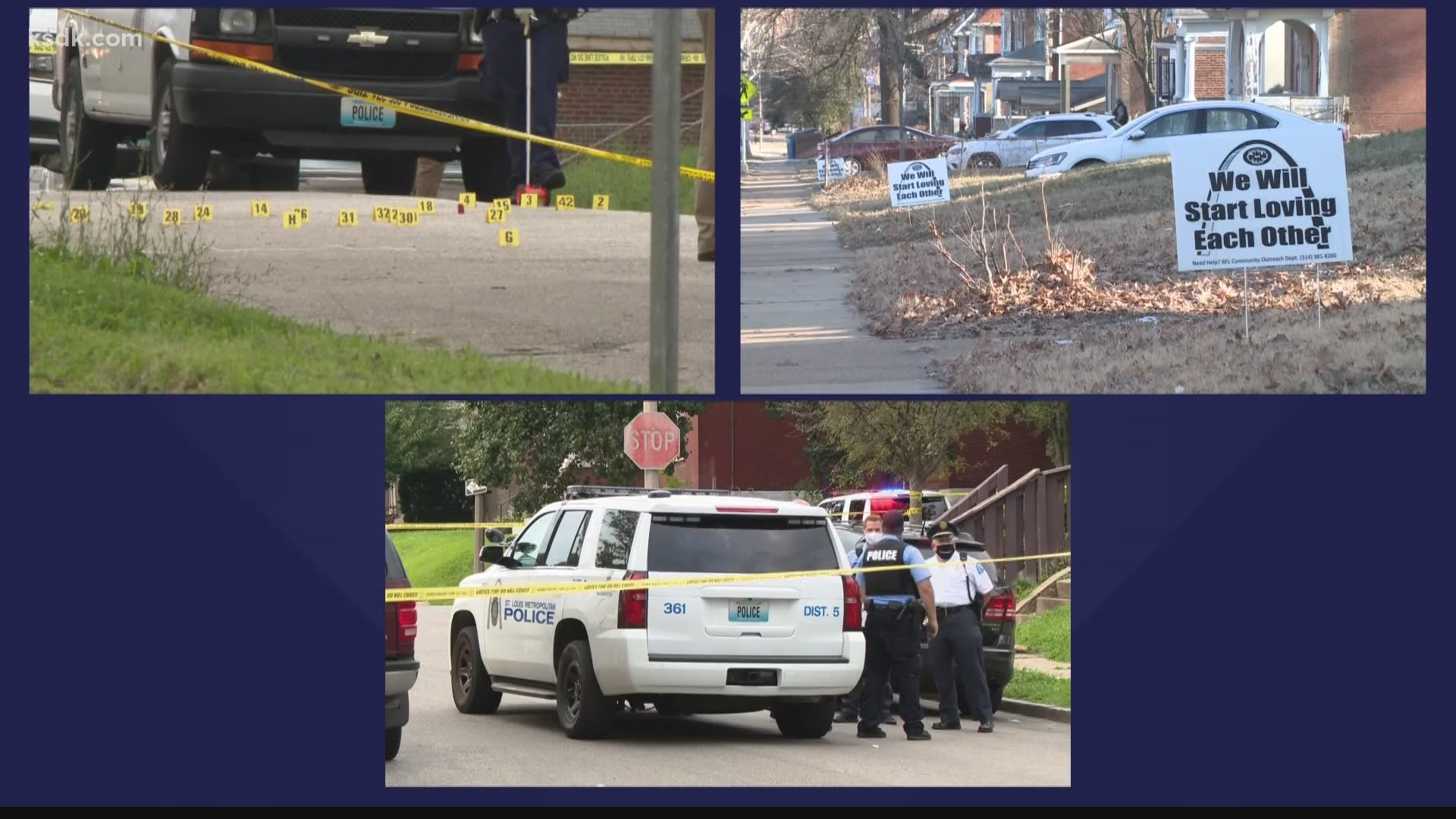ST. LOUIS — There’s been an onslaught of programs aimed at curbing violence in St. Louis – and Friday, perhaps the longest-running among them got a progress report.
Missouri Attorney General Eric Schmitt announced the progress his Safer Streets Initiative is making about a year after it launched in three cities across the state: St. Louis, Kansas City and Springfield.
The program essentially paired eight prosecutors from his office with federal prosecutors to boost the number of charges – and sentences – criminals get.
Not surprisingly, gun crimes top the list of the 314 charges that have been issued statewide.
And, most of them – 223 – came from St. Louis.
PREVIOUS STORY: Missouri AG says Safer Streets initiative working in St. Louis
That’s because gun crimes, like a felon in possession of a firearm, are still illegal at the federal level even though the state allows anyone to carry a gun.
“Federal penalties are a lot stiffer too, there are mandatory minimums,” Schmitt noted.
U.S. Attorney Jeff Jensen joined Schmitt for his press conference Friday, but the effort is different from Jensen’s Operation Legend. That program adds federal agents to local police departments to increase the number of search warrants and arrests.
And Cure Violence treats gun violence as a public health issue, in which conflicts get identified and interrupted as well as high-risk individuals are targeted for treatment.
Schmitt said his program is strictly the prosecutorial side of the issue.
“There is serious cooperative work being done that doesn’t exist anywhere else in the country,” he said.
But whether the program is translating into results is debatable.
Of the 181 defendants who have been charged statewide so far by Safer Streets prosecutors, about 40 of them have been convicted through pleas. Two cases have been dismissed. And the rest are still pending.
Crime is down in some categories in St. Louis, but homicides are surging.
The feds can't charge someone with a homicide -- but they can charge someone with a federal crime that's connected to a murder, such as a felon in possession of a firearm.
James Clark of the Urban League said enforcement projects like Safer Streets will not make streets safer on their own. There needs to be outreach efforts like those he's involved with, including Serving Our Streets, that target high crime areas with access to social services, too.
And, not all of the high crime neighborhoods in the city, county and Illinois are getting them, he said.
He compared it to a mother and father raising a child. The father may bring the discipline, and the mother will bring the nurturing, he said.
"But you have to have both to raise a successful child," he said.
Jensen said he believes Operation Legend and Safer Streets are addressing the crime issue in the short-term to give long-term solutions like Clark's program the room to take root.
"They can't do the work with the bullets flying like they are right now," Jensen said.
Schmitt agrees.
“These are individuals who are terrorizing these communities,” he said. “But we have a lot of work to do.”

